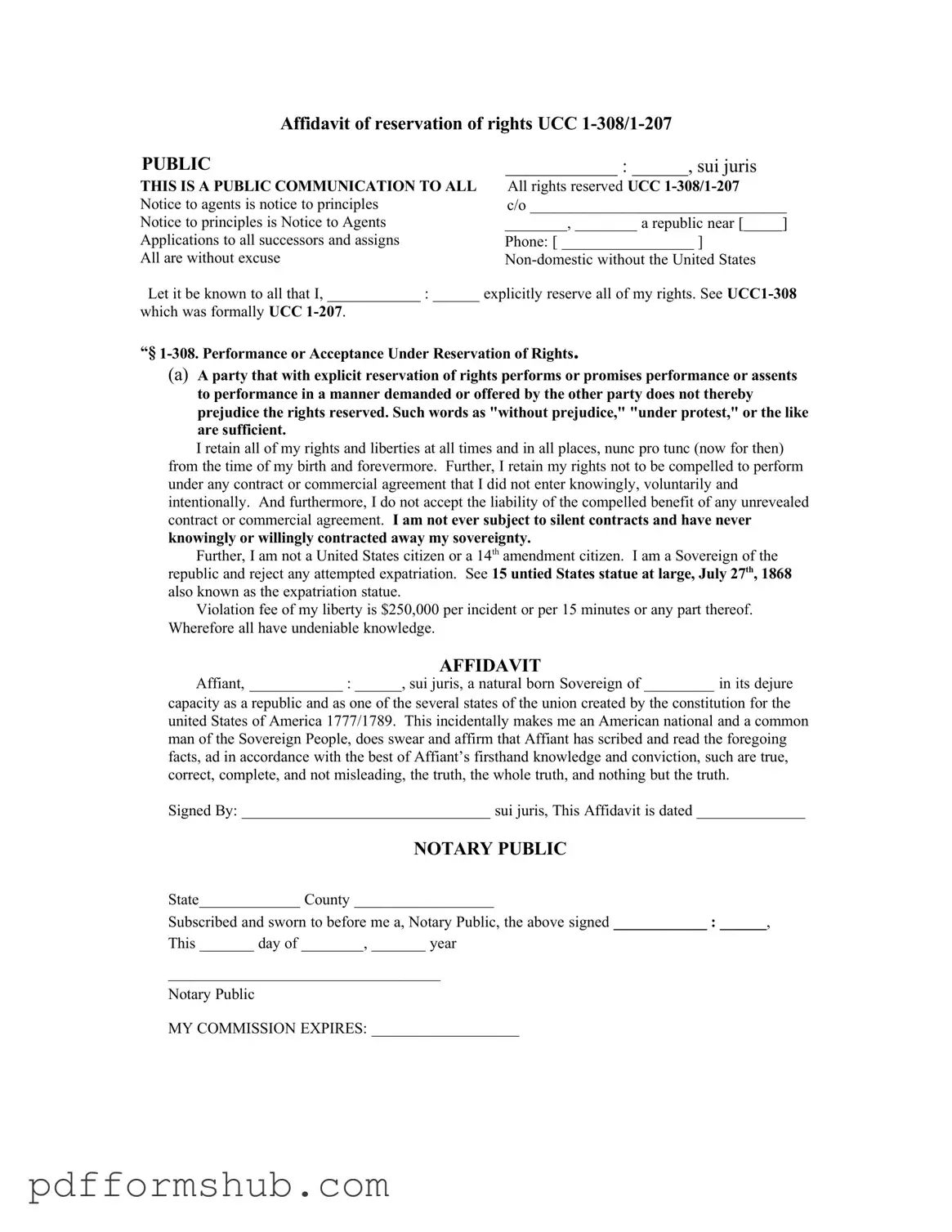Fill in Your Ucc 1 308 Form
The UCC 1-308 form, also known as the Affidavit of Reservation of Rights, allows individuals to explicitly reserve their rights in legal and commercial matters. This form serves as a public declaration that one does not waive any rights or liberties when entering into agreements or performing actions under duress. Understanding how to properly fill out this form is crucial for those seeking to protect their sovereignty and rights.
To fill out the UCC 1-308 form, click the button below.
Customize Form

Fill in Your Ucc 1 308 Form
Customize Form

Customize Form
or
Free PDF Form
Short deadline? Complete this form now
Complete Ucc 1 308 online without printing hassles.